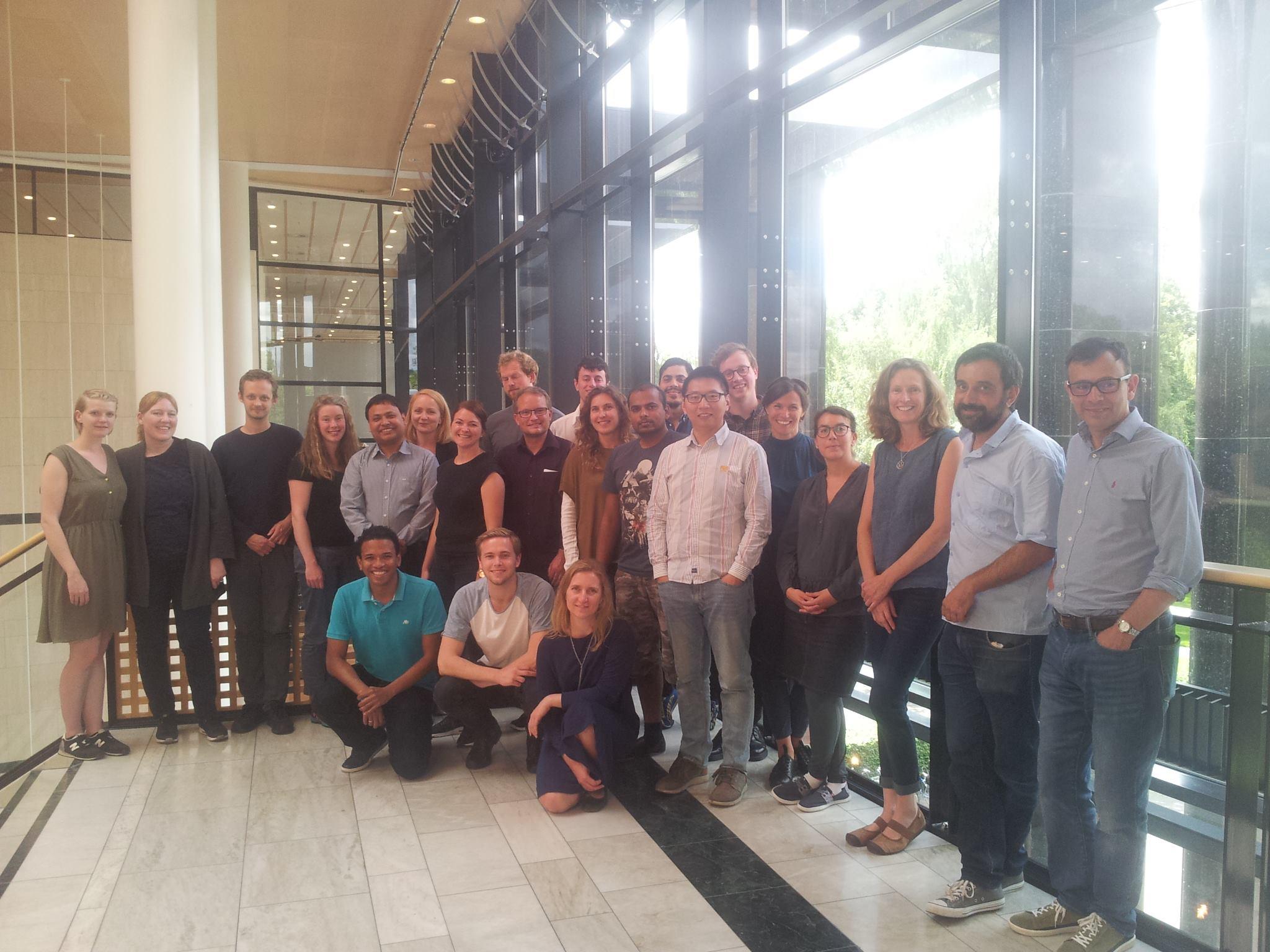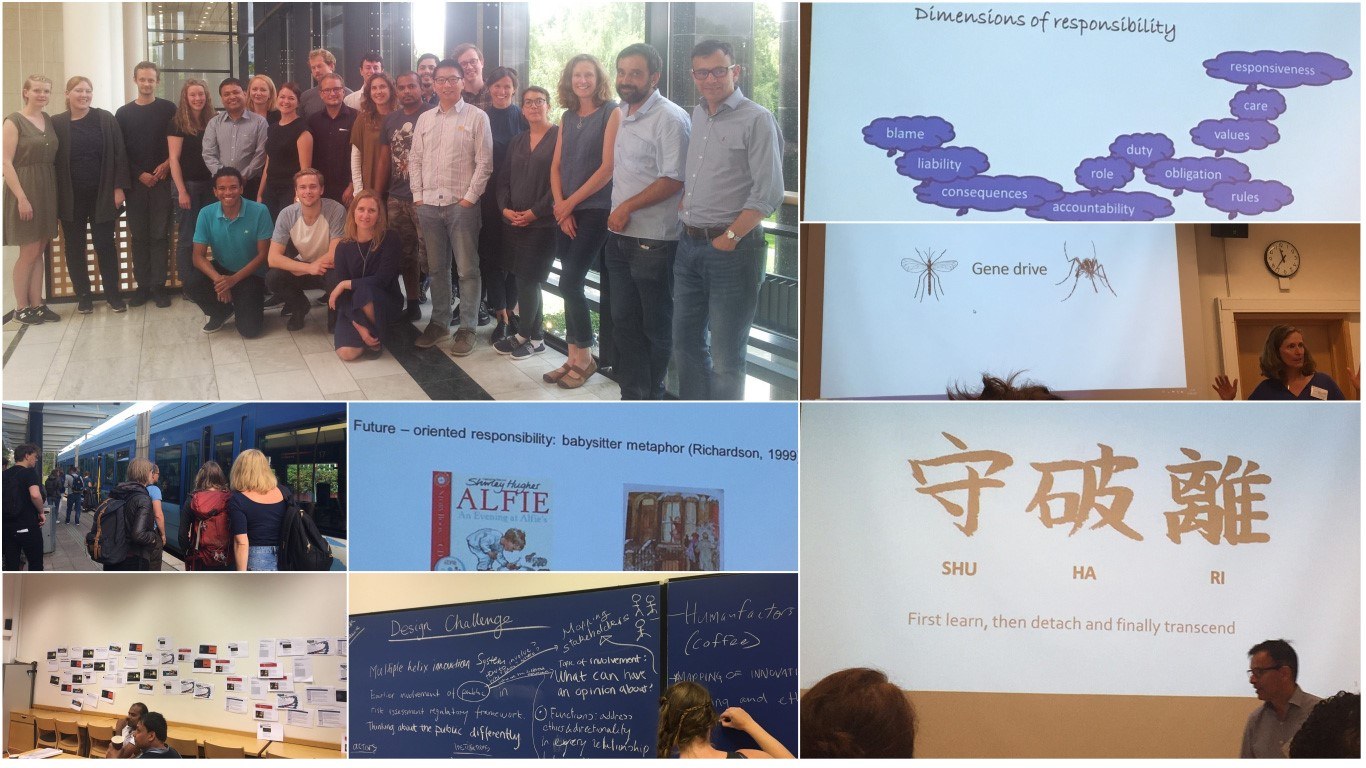A deep-dive into RRI
During one intense summer week, Line Barkved (NIVA) participated in a course on Responsible Research and Innovation (RRI) at UiO. The course was lead by experts in the field Prof. Richard Owen and Dr. Sarah Hartley from the UK. Here are some points from the course.

Each year, the Oslo Summer School in Comparative Social Science Studies at University of Oslo arranges Phd-level courses in different topics. This year Responsible Research and Innovation (RRI) was one of the courses.
It is among the first time a course like this is arranged on RRI. Even though experiences with the concept RRI and putting it into practice is growing, it is still something that is emerging and evolving.
We were an international group of 22 participants taking the course, with majority of us currently working in Norway or Spain.
We got to know about the background and historic development of Responsible Research and Innovation (RRI). For those interested in the curriculum of the course the reading list and material can be found here.
A week with different ways of learning
The lectures were a good mix of presentations, video material, group discussions, tasks and exercises. We also had guest speakers.
Representatives from the Research Council of Norway, from the BIOTEK2021 and Samansvar program talked about why they see RRI as an important and valuable approach to complex challenges in our societies.
We went to visit the Norwegian Board of Technology to hear from and discuss with them about how they work.
Dr. Ellen-Marie Fosberg and Post.doc Erik Thorstensen (HiOA) visited to present experiences from on-going the Assisted Living Project, an interdisciplinary project on responsible innovations for dignified lives at home for persons with mild cognitive impairment or dementia. This project is funded by Samansvar of the RCN, like our iResponse-project (some perspectives on RRI in iResponse can be found here).
RRI - a collaborative endeavor
RRI is an interdisciplinary and even a transdisciplinary process and effort, were researchers from different disciplines and stakeholders work together on a problem or issue. Over the course of the week, through our discussions, and coming from different fields I think we all gained understanding of this.
On that note, a point was raised that there could have been more natural scientists and engineers attending. In total, I think there were 2-3 "hard core" natural scientists e.g. working with physics and lab experiments, and a few of us working in-between. That said, this was a course arranged by a social science school, so naturally, there should be many social scientists. Yet it was open to all disciplines and also to others than PhD-students.
During the week I did several times think about how we may understand and use concepts differently. This is nothing new, yet I do see in an RRI context that it is useful to be open, ask and clarify before jumping to conclusions on what others mean by a specific term. E.g. as natural scientists we maybe at times not use terms in the same fine-tuned way or with the same attached meaning as in social sciences (e.g. acceptability vs perceptions of, collaboration vs cooperation etc.), and vice-versa. Rather assume that "this or that" is meant, we may ask to clarify and understand.
Some reflection points
Some points I picked-up during the week:
- Technology has a significant role and impact in our societies and a critique to some of the technology assessments in the past is that there has been very much focusing on technology push, e.g. investigating acceptability of a certain technology, rather than a demand-side perspective (pull), or an open starting point (do we need/or want this?)
- RRI is not meant to be about claim and blame, but a future-oriented activity and process, creating the future together. What we do (today) in innovation and research impacts the future.
- Public engagement has a central role in RRI. But, who is the public? In a specific setting or project, it could e.g. mean a wider set of actors outside your own discipline or topic. It does not always have to mean the general public as such.
- What are your motivations for engagement? If you're going to remember one thing, remember this Richard Owen said. Always investigate and clarify your motives for engagement.
- RRI is much about being open and willing to listening to other perspectives. If you are asking for input, are you ready to listen to and take this into consideration?
- There is a need for (more) emphatic ways of working together. E.g. in terms of research collaboration sometimes the social scientist(s) in a technology project may feel like a token add-on or as the facilitator for others work, e.g. arranging meetings etc. Natural scientists working on e.g experiments and developments in the lab may at times feel like being studied and evaluated for the purpose of social scientists writing papers about it.
- Scientists are also citizens. It is not about "us" and "them", we are all part of the society.
- What we choose to do (or not do) is not value-free, values and motivations have a role to play in RRI
- Our activities are part of a system, and may be both enabled and hindered by it, as well as our actions cause intended and unintended impacts on the system(s). RRI is a responsibility of several actors (not only researchers). Which actors are/should be accountable for what? E.g. what is the role of universities? There might be no single or apparent answer, but a systems approach and systems thinking can provide useful perspectives for different contexts, applications and cases.
..these were some of the aspects we talked about.

Photos: Group photo (Tron H. Torneby), Line Barkved.
--------------------------------------
About the Author: Line Barkved is one of the researchers in the iResponse-project and leads WP2 on "Dialogue, Social Participation and Learning". She is a research scientist at NIVA working on water management, technology, and governance. She's interested in collaborative design and innovation. Twitter: @linebarkved